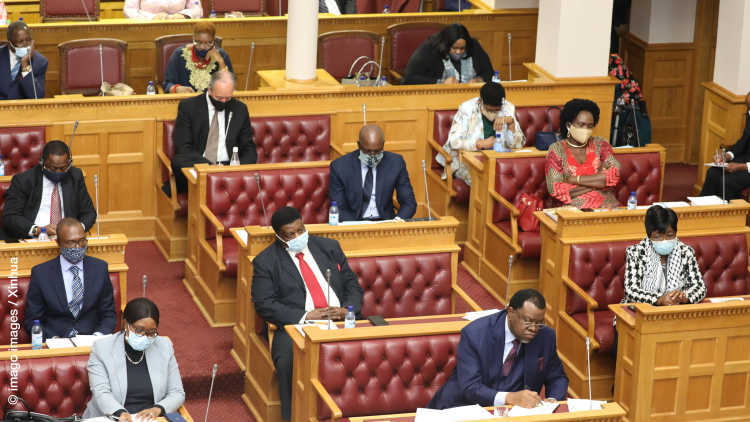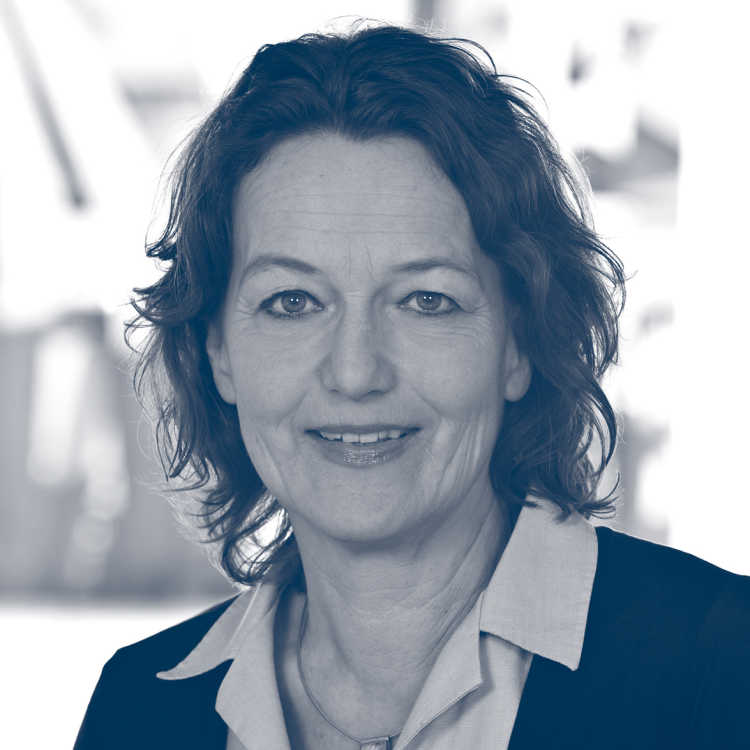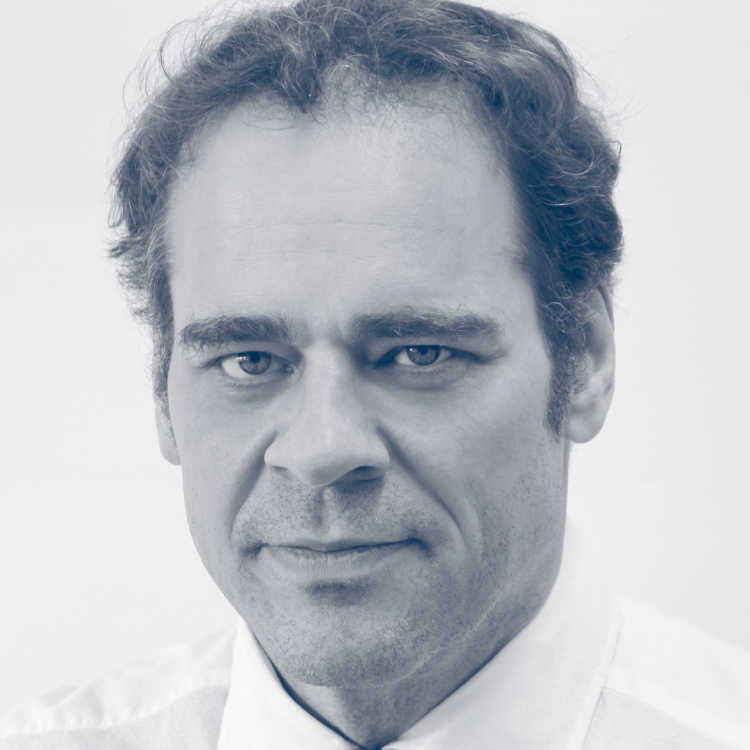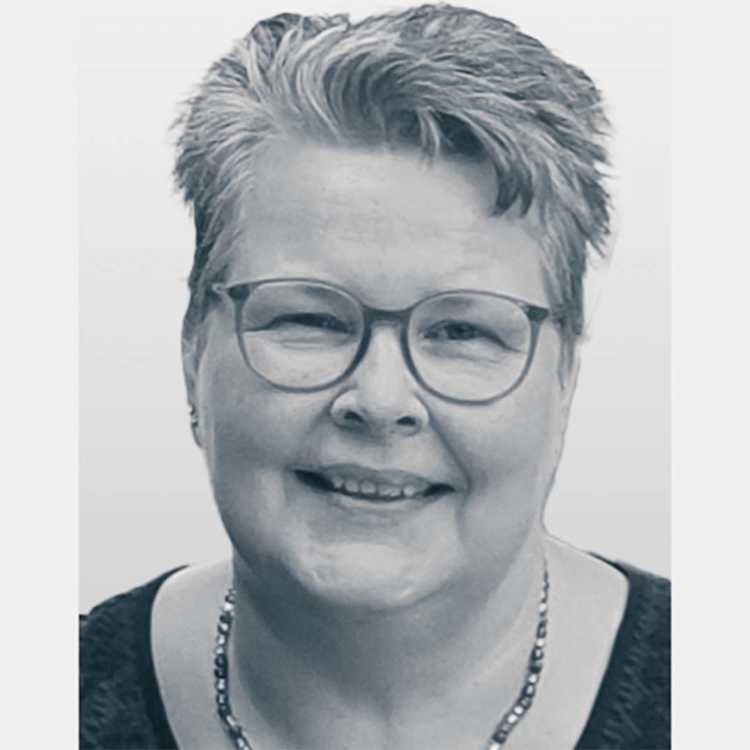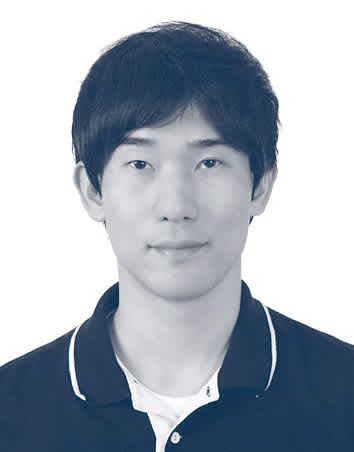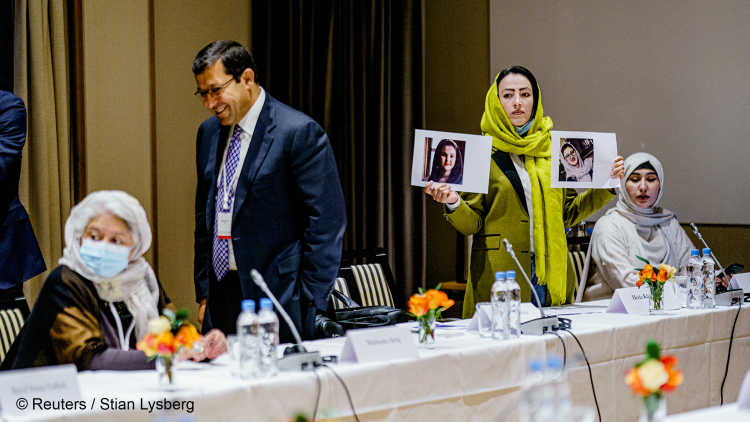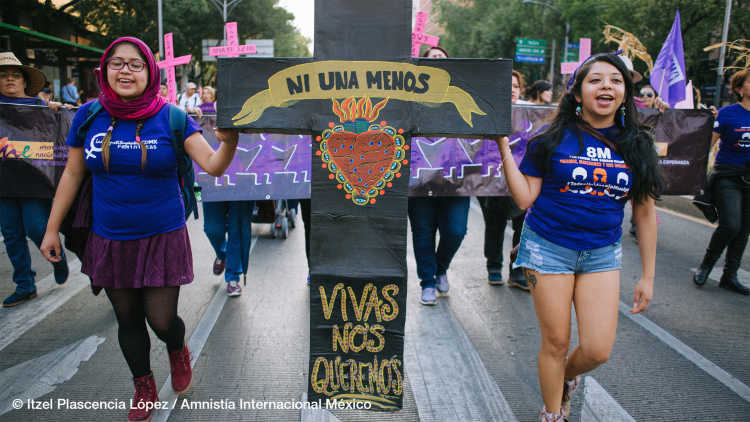- Startseite
- Publikationen
- GIGA Focus
- Queen Mothers: Women in Leadership in Sub-Saharan Africa
GIGA Focus Afrika
Queen Mothers: Women in Leadership in Sub-Saharan Africa
Nummer 5 | 2022 | ISSN: 1862-3603
In some precolonial regimes in sub-Saharan Africa, queen mothers ruled alongside kings. Yet, women were dislodged from leadership positions over time. Today, many countries are discussing how to boost the number of women in politics and business. Some sub-Saharan African countries are already among the top 25 in terms of proportion of women in parliament, and boast above-average percentages of women on corporate boards. How did women become leaders in these sectors?
Men usually dominate in leadership positions; however, some countries have achieved impressive numbers of women in political and economic leadership by introducing affirmative policies in favour of fast-tracking women’s participation. Although there are still miles to go before gender parity is finally achieved, certain countries in sub-Saharan Africa show that changing the rules of the game by implementing a mixture of affirmative policies increases the number of women in leadership positions.
Women’s movements are behind the big jumps in female representation that countries in sub-Saharan Africa have made. Especially in post-war societies, women’s movements have used the opportunity to push for more women in leadership. For example, the Women’s National Coalition in South Africa lobbied for a gender advisory body to the Constitutional Assembly, which contributed to the Constitution now including a strong equality clause. Even though we have witnessed many women being sent back to private spaces after wars, the immediate post-war context can drastically change the social standing of women for the better.
Alongside structural factors that increase women’s participation in leadership, there are also individual factors that certain women bring to the table. Wealthy and educated women often climb up the career ladder. Additionally, women who benefit from training for management and mentoring are empowered to participate in politics and business.
Policy Implications
While it is easy to look at the global gender equity gap and shrug it off as a problem too big to solve, certain countries in sub-Saharan Africa show that rapid changes are possible when a mixture of affirmative policies is implemented, when women’s movements are supported, and when women have access to education and money. International donors should promote feminist policies to increase the number of women in power.
From Queen Chiefs to Women in Leadership Positions
In some precolonial African systems, female leaders ruling political and economic institutions were a common sight. For instance, during the Ashanti (Asante) Empire (1701–1901) in what is today southern Ghana, queen mothers ruled alongside kings. The oheema (queen chief) was even in charge of choosing the king in case the position was vacant (Farrar 1997). Some of these dynamics have managed to survive colonial rule, and despite existing patriarchal norms, low levels of women’s education, and other factors such as poverty among women, today women increasingly hold positions of power in sub-Saharan Africa (SSA).
Shooting Stars and Slackers
There is an increasing number of women in leading positions in some sub-Saharan African countries. They serve African countries and companies as presidents, prime ministers, and senior and top managers. To name just a few, Samia Suluhu Hassan is president of Tanzania, Saara Kuugongelwa-Amadhila is prime minister of Namibia, and Lillian Barnard is the managing director/CEO at Microsoft South Africa. Indeed, in some African countries women make up a fair share of political leadership: For example, 61.4 and 46.8 per cent of the members of parliament are women in Rwanda and South Africa, respectively, compared to only 25.6 per cent worldwide and 24.9 per cent in SSA (all percentages on women in parliament come from Inter-Parliamentary Union data). Some sub-Saharan countries are also leading in gender equity in the private sector, topping the number of women on corporate boards worldwide. For instance, the International Labour Organization (ILO) reports that in Botswana 56.7 per cent of senior and middle management positions were held by women in 2020, while it was only 30.3 percent worldwide and 29.9 per cent in sub-Saharan Africa (all percentages on women in middle and senior management come from ILO data). At least 12 countries in SSA have introduced reforms promoting gender equality in business, with South Africa particularly standing out in this regard.
Although there are several shooting stars of women’s leadership in sub-Saharan Africa, there are also slackers. In Nigeria and Benin, only 7 per cent of current members of parliament are women; the corresponding figure for senior and middle management in Senegal stood at just 21 per cent as of 2019. Furthermore, women’s representation in leadership must be critically evaluated in terms of the power women have in leadership positions they hold. In top political and economic leadership positions, women are far and few between. Worldwide in 2021, 26 women were serving as heads of state and/or government in 24 countries, six of them in sub-Saharan Africa. However, only the current president of Tanzania is the chief executive. Similarly, high levels of women’s representation in countries such as Rwanda must be considered in light of the parliament’s limited power. Only one out of six top managers (16.2 per cent) was a woman in SSA, compared to the global average of 18 per cent in 2020. Moreover, women tend to take on leadership in certain departments or deal with specific topics. For instance, women are better represented in public relations and human resource management than in more technical operations or general management. The same is true for political leadership, in which women tend to deal with topics such as family and health care rather than defence and economy (UN Women 2021; ILO 2015).
Figure 1. Share of Women in Parliament in Sub-Saharan Africa as of 1 March 2022
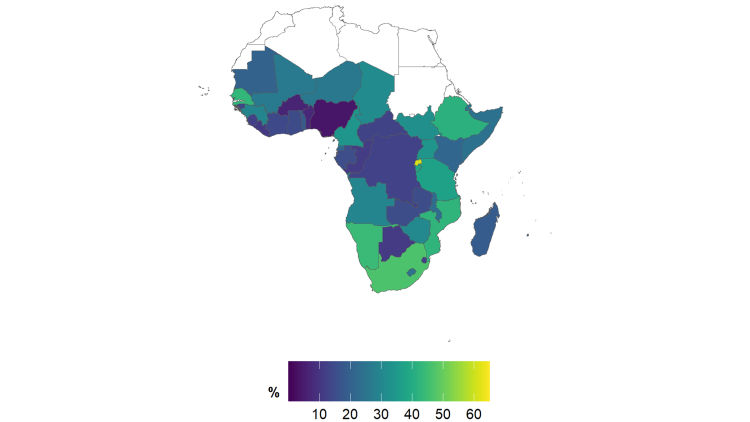
Source: Inter-Parliamentary Union.
Figure 2. Share of Women in Senior and Middle Management in Sub-Saharan Africa
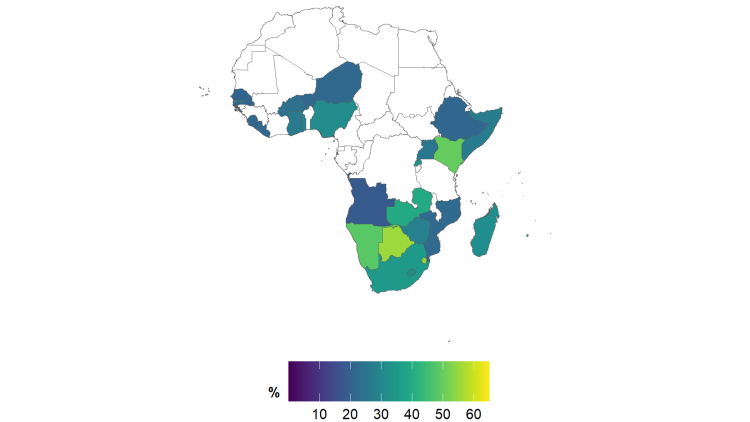
Source: International Labour Organization, latest data available per country (2012–2020).
What is interesting about sub-Saharan Africa is the pace at which women have gained access to leadership positions in some countries (see Figure 3). Several sub-Saharan African countries, among them Rwanda, South Africa, and Uganda, made big jumps and quickly attained high levels of women in parliament. Djibouti, which in the year 2000 did not have a single woman in parliament, experienced the most dramatic gains globally among lower and single chambers: in 2018 the share of women in parliament rose from 10.8 per cent before the election to 26.2 per cent afterwards.
Figure 3. Share of Women in Parliament, 1997–2021
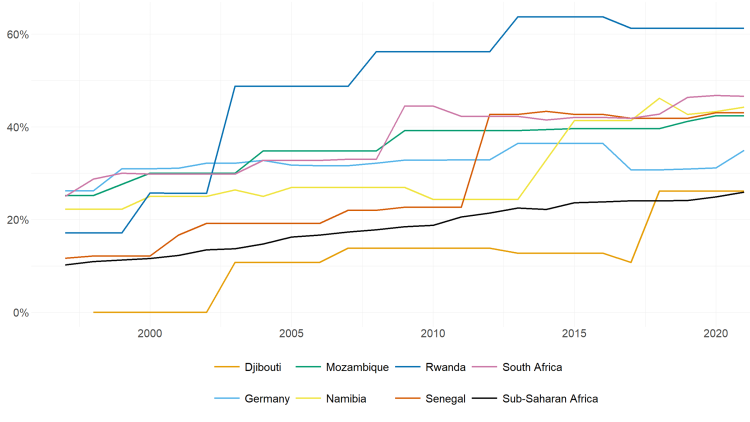
Source: Inter-Parliamentary Union.
Similarly, some countries have achieved high numbers of women in middle and senior management positions in a rather short period of time (see Figure 4). For instance, in South Africa the share of women in senior and middle management positions rose quickly, going from 22.6 per cent in 2000 to 30.5 per cent in 2005. Afterwards, growth slowed but continued – in 2020 women made up 35.1 per cent of senior and middle management positions. Data for other countries is less detailed but shows, for example, that shares of women in senior and middle management positions in Botswana rose from 29.6 per cent in 2009 to 55.3 per cent in 2020.
Figure 4. Share of Women in Senior and Middle Management, 1999–2020
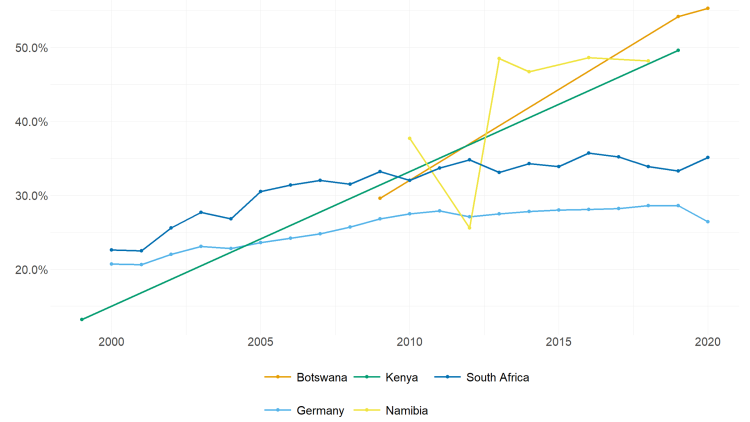
Source: International Labour Organization.
Changing the Rules of the Game
Despite the above-mentioned gains, there is still much work to be done; yet, sub-Saharan Africa has been distinct in introducing proactive measures in favour of fast-tracking women’s participation in parliament and companies. What can be learned from Africa’s shooting stars? How did women become leaders in political and economic institutions?
For women to attain leadership positions, the rules of the game need to be changed. Structural barriers continue to prevent women from not only entering business and politics but also advancing to more prestigious roles in those fields. Gender norms demanding that women be caring mothers and men leaders often preclude women’s participation in leadership and decision-making (Amponsah and Boateng 2021). General laws stipulating gender equality alongside more specific regulations can change the rules of the game to facilitate greater access for women to leadership positions. Many countries in SSA have some kind of anti-discrimination clause in their constitutions; however, laws can also go beyond this: for instance, the Constitution of Mozambique mandates that
the state shall promote, support and value the development of women, and shall encourage their growing role in society, in all spheres of political, economic, social and cultural life of the country.
The Namibian parliament passed the Affirmative Action Act in 1998 to ensure fair employment practices regarding, for example, recruitment, promotion, and training for historically disadvantaged groups, including women. While these laws alone do not grant women access to leadership positions, they are a starting point and a resource for women claiming their right to lead.
Quotas are often seen as an important tool to expand female leadership. Quotas prescribe a minimum proportion or number of women to be included in leadership positions. They have been criticised for increasing the number of women in rather isolated, high-up positions but not changing the general rules of the game that would make room for women to enter leadership positions at all levels. Additionally, the so-called “golden skirt” effect (a few women accumulating many positions) and tokenism (the purely symbolic inclusion of women) are both associated with quotas (Berry, Bouka, and Kamuru 2021). Nonetheless, quotas, reserved seats, and staff targets have brought many women into political and economic leadership in sub-Saharan Africa.
In 11 sub-Saharan African countries, electoral quotas for parliaments help promote women’s inclusion in the political sphere. Through the introduction of quotas, Namibia raised its share of women in parliament from 24.2 per cent in 2013 to 41.3 per cent after the first election with quotas in 2015. Reserved seats are also increasingly being used in Africa: as of 2021, 13 countries used a system with reserved seats. SSA countries with reserved seats had an average of 29.2 per cent women in their legislatures in 2020, whereas those without any regulations had 15.5 per cent, according to the International Institute for Democracy and Electoral Assistance. In Zimbabwe, reserved seats increased the representation of women in parliament from 15.2 per cent in 2008 to 31.5 per cent in 2013. However, it can also be observed that African countries are at the forefront of introducing mixed systems: for instance, Rwanda’s majority-female lower house – which, admittedly, has limited power in the Rwandan political system – can be explained by a constitutional gender quota that includes reserved seats and voluntary party quotas for women.
Changing electoral procedures can also increase women’s participation. Women are less often elected in electoral systems with majoritarian representation in single-member districts, which are used in 26 African countries. In this winner-takes-all electoral system it is more difficult for women to become elected as the first candidate because voters prefer the status quo, often meaning male candidates. By contrast, electoral systems with proportional representation augment the numbers of women in politics. Thus, countries such as South Africa, Mozambique, and Namibia that use proportional representation display high percentages of women members in parliament. However, changing the electoral system is not always the best solution. Studies from Benin show that introducing a proportional representation electoral system does not necessarily reduce biases against female candidates when the costs of local elections increase to a level in which women cannot afford to pay for their election campaigns and secure party nominations (Arriola, Johnson, and Phillips 2021).
Mandatory quotas are not a popular tool for senior management or company boards in SSA (Chinyamurindi, Chuchu, and Maziriri 2022). In places where they exist, such as Kenya, sanctions for non-compliance are not in place. In some cases, for instance South Africa, the state has tried to set an example by implementing quotas in state-owned businesses. Voluntary targets, which are more flexible than quotas, are a more common practice in the economic sphere. Similarly, many companies, such as the telecommunications company T-Systems South Africa, have introduced not only gender policies that concern the general company culture but also practices that are relevant to the recruitment and promotion of women into leadership positions (Iqbal and Ramalho 2019). As of 2020, T-Systems South Africa’s board was two-thirds women. One important use of gender policies is to question seemingly objective recruitment and promotion criteria. For example, the number of consecutive years a person has been working in a company de facto bars women from entering leadership, as women are more likely to interrupt their careers upon becoming parents. Creative ideas such as the Johannesburg Stock Exchange requiring listed companies to adopt a gender policy can be an inspiration.
Transparency is another factor that is relevant for how women are selected as leaders in companies and political parties (Chiweza 2021). We observe that when countries use party nomination to select candidates instead of allowing all party members to stand if they want, women struggle with getting access to the political system because parties often favour wealthy male candidates. Inclusive elections, in which all party members have the opportunity to vote for their parliamentary candidates, have produced more female candidacies in Ghana, Nigeria, and Botswana. This can mostly be attributed to the fact that women often run as outsiders that promise to end shadowy and corrupt election processes (Arriola, Johnson, and Phillips 2021). In the private sector, transparent processes vis-à-vis top leadership positions make clear to all workers in a given company the goals that have to be met to climb the career ladder (Fraser-Moleketi and Mizrahi 2015).
In short, changes in electoral systems along with gender quotas and reserved seats have facilitated women’s access to politics in several countries in sub-Saharan Africa. In the business sector, voluntary targets and company gender policies as well as transparent promotion opportunities have contributed to changes towards gender balance in leadership.
Women of the World: Unite!
Changing laws, policies, and practices is an arduous process. In sub-Saharan Africa, local and international women’s rights advocates have been able to gain ground by exploiting phases of transition caused by armed conflicts. Many of Africa’s shooting stars regarding women’s representation in parliament, among them Rwanda, South Africa, and Uganda, have seen a remodelling of society after respective civil wars. Globally, post-war periods have offered opportunities for change, as peace agreements and new constitutions can stipulate women’s rights and change political and economic life (Tripp 2015). Moreover, the effects of war are gendered such that more men fight and die in war while women take over leadership at home and survive. This allows women to acquire skills and confidence. Although we witness many women being once again relegated to the private sphere and domesticity after war, the immediate post-war context offers an opportunity for drastic changes in the social position of women.
The link between war and women’s representation is by no means automatic. Rather, local and international women’s rights advocates have pushed for changes within the context of transition. In South Africa, the Women’s National Coalition lobbied for a gender advisory body to accompany the process of writing a new constitution. This contributed to the Constitution of South Africa now including a strong equality clause. Similarly, the Rwandan women’s movement Pro-Femmes successfully pushed for women’s issues to be addressed in the constitution after the genocide there. In 14 countries, among them Mozambique and Namibia, political parties contributed to an increase of women in political leadership by voluntarily implementing quotas for their electoral lists (Bauer and Britton 2006). This strategy is particularly effective in proportional representative systems.
International advocates of women’s rights, such as the United Nations, have bolstered local efforts to lobby for women’s rights, especially in post-war contexts. International conventions such as the one created in the framework of the United Nations Fourth World Conference on Women, held in Beijing in 1995, are spaces of inspiration for individual activists. In post-war societies, international actors often intervene in the structuring of peace processes and through financial aid for reconstruction. Advocating for gender equality through these channels, for example by promoting women’s participation in peace processes, can support local efforts. An international climate favouring gender equality may also motivate state leaders to polish their international standing by advocating for gender equality.
Senegal is an example of the change women’s movements can engender in the absence of a disruptive transitional context such as war. Whereas only 12.1 per cent of Senegalese parliamentarians were women in 2000, they currently comprise 43 per cent. In 2000 the Socialist Party was voted out of office after 40 years in power and in 2001 a new constitution was ratified. A steep increase of women in parliament came only with the passing of the Law on Parity in 2010. This law requires gender parity on all national and local electoral lists. The Conseil Sénégalais des Femmes drafted and advocated for the implementation of this law. The Senegalese women’s movement was successful in pushing for the Law on Parity partly also because the Senegalese president at that time, Abdoulaye Wade, and the Senegalese Association of Jurists supported their efforts (Tøraasen 2017). Thus, the Senegalese case also teaches us that integrating men into the fight for women in leadership positions can be a successful strategy.
Being connected brings women into a better position to attain leadership positions. In the economic sphere, women’s business organisations and workers unions demand change and empower women by bringing them together. The South African Businesswomen’s Association (SABWA) is an inspiring example of women mobilising nationally to advocate for women in economic leadership. The association not only aspires to offer women opportunities for personal development, mentoring, and networking but also lobbies for gender equality in the economic sphere. The Women’s Investment Club is another known example of how women support women by providing business advice, mentoring, and networks to women entrepreneurs across Senegal and Côte d’Ivoire. In the political sphere, party support and candidate networks help women overcome potential voter bias against them. Interestingly, these networks are mostly civil society organisations, such as women’s movements. For instance, Botswana’s women’s organisation Emang Basadi organised workshops for political parties and women candidates in the 1990s, leading to the highest number of elected women that Botswana had ever had (Bauer and Britton 2006).
To summarise, women’s movements, political parties, and women’s business organisations have done important work to increase the number of women in leadership. Windows of opportunity opened by transitional periods such as post-war contexts have been used by women’s movements to create change and international advocacy for women in leadership.
Queen Mothers and Money Makers
Individual, personal factors further explain why some women become leaders in business or politics while others do not. Often, those women who are elected are wealthy. In the political realm, wealth is important for financing campaigns. Additionally, wealth signals a woman’s knowledge of how to take care of money properly. By extension, voters assume that these candidates will take good care of state affairs and finances. For instance, Kenyan presidential candidate Martha Karua’s ability to govern was questioned in 2013, when she publicly declared her rather small net worth in comparison to other candidates, which included a house, a car, and a parcel of land in Tigoni. The same goes for the business sector, in which women from rich families struggle less with establishing successful businesses. For instance, Isabel dos Santos (daughter of former president José dos Santos of Angola) used her wealth and probably illicit networks to establish her businesses and become one of the richest women in Africa. Simultaneously, wealthy women are often highly educated, another factor making them more likely to acquire leadership positions.
Providing education to everyone is another way to increase the number of women in the business sector. Women entrepreneurs who received not only formal education, but also informal career development opportunities, such as access to mentoring or training opportunities on finances, administration, and entrepreneurship, are the ones who have established most businesses in the region. To be elected to political office, women in SSA need equal levels of education as men. For instance, in Zambia the women who won elections in 2004 were not necessarily more educated than the men. Some African countries have laws that require potential candidates to have minimum education levels; such laws mostly bar women from running for leadership positions. Hence, educated women and women who have received special training in management and mentoring are the ones who attain leadership positions.
Moreover, a woman’s private life affects the probability of her attaining a leadership position. In many countries, voters prefer married or older women to run for office. In sub-Saharan Africa, voters prefer candidates who are married but without young children, a profile much more common among men than women candidates in practice. Voters particularly discriminate against divorced women candidates. Still, some female candidates decide successfully to use gendered stereotypes in their campaigns as an advantage against male candidates. As such, it is known that women who emphasise “traditional” characteristics of mothers in their campaigns evoke images of compassion and simultaneously authority, which compels voters to trust them (Deason 2021). This is in line with the notion of queen mothers and strong African women standing as unmoving pillars of their communities that transcends national borders in SSA. For instance, Tanzania’s president Samia Suluhu Hassan used the notion of her taking care of the country in her campaign and is now often respectfully called “Mama Samia.”
Finally, women in sub-Saharan Africa were often elected or promoted, or established their own businesses, in a context of family ties that facilitated their access to politics and businesses. Data suggests that approximately 13 per cent of women executives in sub-Saharan Africa belong to a political family. (However, unlike in Asia and Latin America, wives in SSA do not easily become politicians after their husbands’ deaths.) For instance, former Liberian president Ellen Sirleaf’s father served in parliament, and the father of two-time acting president of Mauritius Monique Ohsan-Bellepeau (2012 and 2015) was the founder of a political party. Also, the aforementioned Isabel dos Santos has used her father’s networks to push her business career.
In sum, individual factors facilitating access to business and politics in sub-Saharan Africa are wealth, education, family ties and, to a lesser extent, playing on gender stereotypes in electoral campaigns.
How to Push for Women Leaders
Women around the world still have fewer opportunities than men to participate in politics and business. To change this, Germany and many other countries have committed themselves under various international agreements, such as the Sustainable Development Goals, to promote gender equality and to enforce the rights of women and girls in all their diversity. However, progress has been slow over the past 25 years, and current estimations based on developments since 2006 assume that it will take another 136 years to close gender gaps regarding economy, education, health, and politics worldwide (World Economic Forum 2021). The coronavirus pandemic may now further impair gender equality and, thus, equal representation of women in leadership.
Some countries in sub-Saharan Africa exemplify how increased women’s participation in leadership positions can be achieved. Germany is doing comparably worse than Africa’s shooting stars regarding women in leadership: currently, women in German parliament have reached a share of 34.9 per cent, and women in senior and middle management comprise only 26.4 per cent. If Germany and other countries want to reach the goal of equal participation for women in political, economic, and public life, they should look to Africa’s shooting stars. Countries such as Botswana, Djibouti, Mozambique, Namibia, Rwanda, Senegal, South Africa, and Uganda clearly show us that a combination of policies can bring us closer to achieving gender equality in leadership.
Quick changes in terms of gender representation in leadership positions can be achieved by introducing a mixture of proactive regulations – for instance, a constitutional gender quota including reserved seats can be combined with voluntary party quotas for women. If promotion and entry opportunities are inclusive and transparent, women will be able to take up more leadership positions. But as long as after-work meetings are the places where career decisions are made, women will struggle to gain access to career opportunities.
Women will struggle with fewer hurdles if they are supported by women’s networks that advocate for women in leadership and offer women opportunities for personal development, mentoring, and networking. International organisations and donors can be a resource and motivation for other countries and institutions by promoting feminist initiatives and incorporating feminist foreign policies into their agendas in order to demonstrate that there is no alternative to supporting women becoming leaders alongside men.
Lack of education continues to be an obstacle for many women and girls to qualify as leaders. Women have a right to education, and providing them with training for management and mentoring will increase the number of women in leadership. Personal wealth continues to be a factor that makes it possible for some women to become leaders and not others. Reducing costs for education, political campaigns, business start-ups, and childcare will facilitate women’s access to leadership positions.
This list is by no means complete; however, these policy recommendations are meant to show that change, if desired, is possible. In the long run, many policies and actors will have to work together to sustainably change gender norms preventing women from attaining leadership positions. At a time where Germany is beginning to revise its electoral procedures for national elections and commit itself to an explicitly feminist foreign policy, cases in sub-Saharan Africa can provide ideas for how to push for more women leaders. In a short period of time, several countries in SSA have increased the number of women leaders not just with creative solutions to change the rules of the game, but also with empowering solutions through women’s networks that put new “queen mothers” at the centre of the solution.
Acknowledgement
We would like to thank Lynda Iroulo and Lisa Hoffmann for their detailed comments and suggestions.
Further, we thank Christine Hoffendahl for stimulating exchanges on relevant literature and highly recommend her annotated bibliography titled Breaking the Glass Ceiling - Women in Leadership in Sub-Saharan Africa.
Fußnoten
References
Amponsah, Nana Akua, and Janet Serwah Boateng (2021), Women in Local Government in Africa: Gender, Resistance, and Empowerment, in: Olajumoke Yacob-Haliso and Toyin Falola (eds), The Palgrave Handbook of African Women’s Studies, Cham: Springer International Publishing, 393–412.
Arriola, Leonardo, Martha Johnson, and Melanie Phillips (eds) (2021), Women and Power in Africa: Aspiring, Campaigning, and Governing, Oxford: Oxford University Press.
Bauer, Gretchen, and Hannah Evelyn Britton (eds) (2006), Women in African Parliaments, Boulder, CO: Lynne Rienner Publishers.
Berry, Marie E., Yolande Bouka, and Marilyn Muthoni Kamuru (2021), Implementing Inclusion: Gender Quotas, Inequality, and Backlash in Kenya, in: Politics & Gender, 17, 4, 640–664.
Chinyamurindi, Willie Tafadzwa, Tinashe Chuchu, and Eugine Tafadzwa Maziriri (2022), Tales of Challenge and Resolution: Narratives of Women Middle Managers in the South African Public Service, in: Gender in Management: An International Journal, 37, 2, 235–250.
Chiweza, Asiyati Lorraine (2021), Party Primary Candidate Nomination Institutions, Informality and Women’s Candidature in Malawi’s Parliamentary Election, in: Diana Højlund Madsen (ed.), Gendered Institutions and Women’s Political Representation in Africa, London: Bloomsbury Publishing, 103–128.
Deason, Grace (2021), The Psychology of Maternal Politics: Priming and Framing Effects of Candidates’ Appeals to Motherhood, in: Politics, Groups, and Identities, 9, 5, 1068–1089.
Farrar, Tarikhu (1997), The Queenmother, Matriarchy, and the Question of Female Political Authority in Precolonial West African Monarchy, in: Journal of Black Studies, 27, 5, 579–597.
Fraser-Moleketi, Geraldine J., and Simon Mizrahi (2015), Where Are the Women Inclusive Boardrooms in Africa’s Top-Listed Companies, accessed 2 June 2022.
ILO (International Labour Office) (2015), Women in Business and Management: Gaining Momentum, accessed 2 June 2022.
Iqbal, Sarah, and Rita Ramalho (2019), Moving towards Gender Equality: A New Index Looks at Legal Reforms to Help Women’s Economic Inclusion, accessed 2 June 2022.
Tøraasen, Marianne (2017), Gender Parity in Senegal – A Continuing Struggle, in: SSRN Electronic Journal.
Tripp, Aili Mari (2015), Women and Power in Post-Conflict Africa, Cambridge: Cambridge University Press.
UN Women (2021), Facts and Figures, Women’s Leadership and Political Participation, accessed 2 June 2022.
World Economic Forum (2021), Global Gender Gap Report 2021, accessed 2 June 2022.
Gesamtredaktion GIGA Focus
Redaktion GIGA Focus Afrika
Lektorat GIGA Focus Afrika
Regionalinstitute
Forschungsschwerpunkte
Wie man diesen Artikel zitiert
Juliana Tappe Ortiz, und Julia Köbrich (2022), Queen Mothers: Women in Leadership in Sub-Saharan Africa, GIGA Focus Afrika, 5, Hamburg: German Institute for Global and Area Studies (GIGA), https://doi.org/10.57671/gfaf-22052
Impressum
Der GIGA Focus ist eine Open-Access-Publikation. Sie kann kostenfrei im Internet gelesen und heruntergeladen werden unter www.giga-hamburg.de/de/publikationen/giga-focus und darf gemäß den Bedingungen der Creative-Commons-Lizenz Attribution-No Derivative Works 3.0 frei vervielfältigt, verbreitet und öffentlich zugänglich gemacht werden. Dies umfasst insbesondere: korrekte Angabe der Erstveröffentlichung als GIGA Focus, keine Bearbeitung oder Kürzung.
Das German Institute for Global and Area Studies (GIGA) – Leibniz-Institut für Globale und Regionale Studien in Hamburg gibt Focus-Reihen zu Afrika, Asien, Lateinamerika, Nahost und zu globalen Fragen heraus. Der GIGA Focus wird vom GIGA redaktionell gestaltet. Die vertretenen Auffassungen stellen die der Autorinnen und Autoren und nicht unbedingt die des Instituts dar. Die Verfassenden sind für den Inhalt ihrer Beiträge verantwortlich. Irrtümer und Auslassungen bleiben vorbehalten. Das GIGA und die Autorinnen und Autoren haften nicht für Richtigkeit und Vollständigkeit oder für Konsequenzen, die sich aus der Nutzung der bereitgestellten Informationen ergeben.
